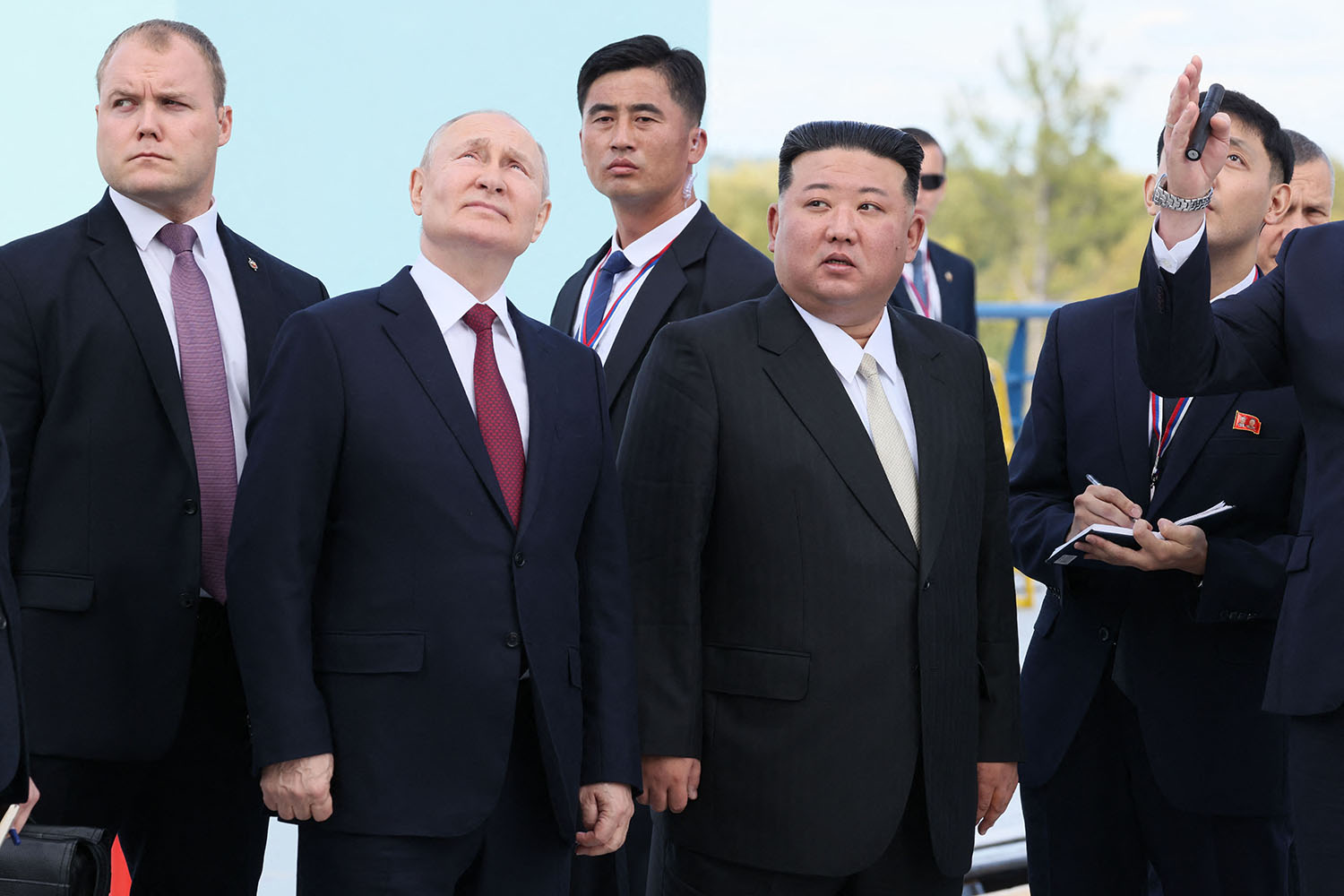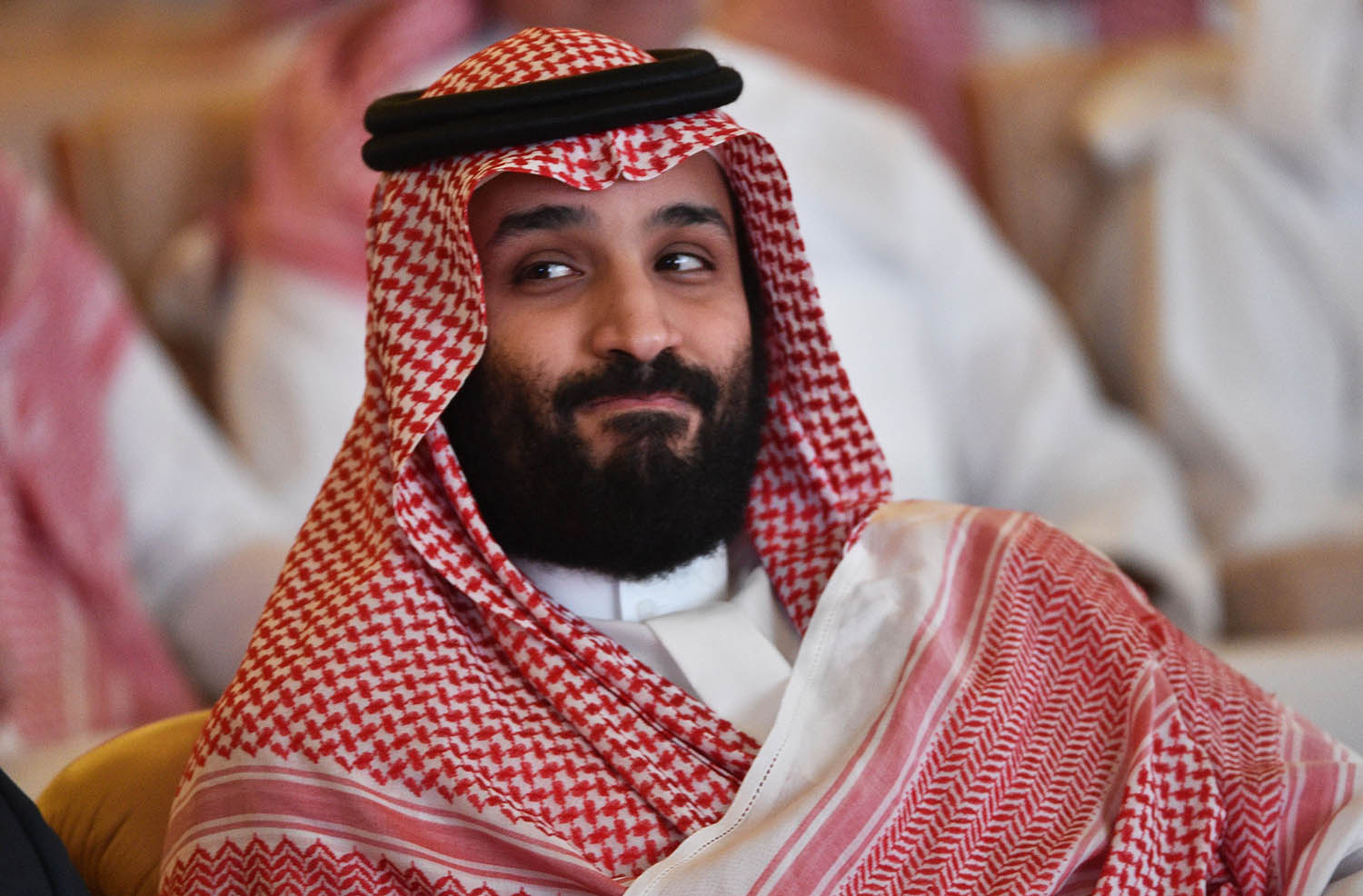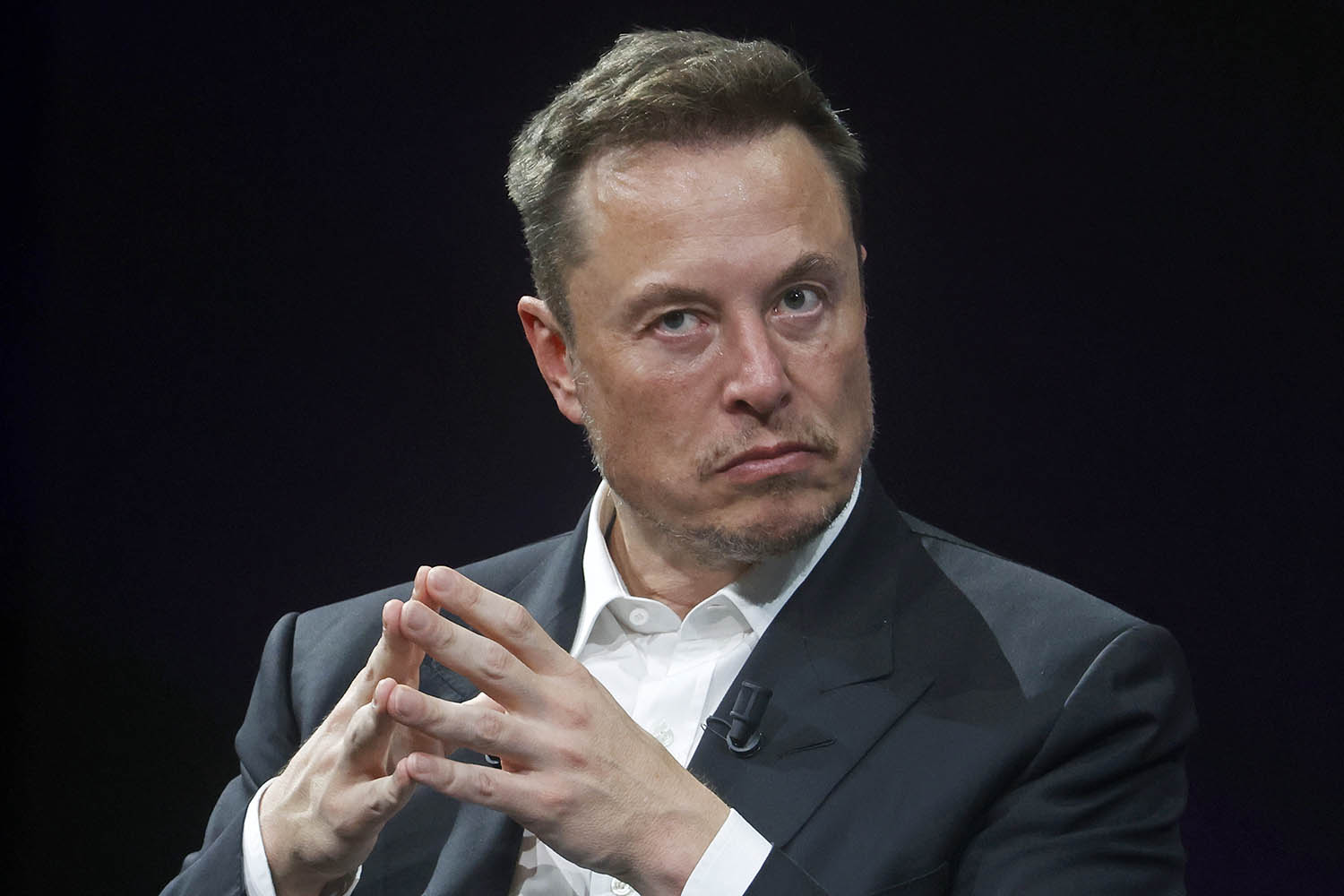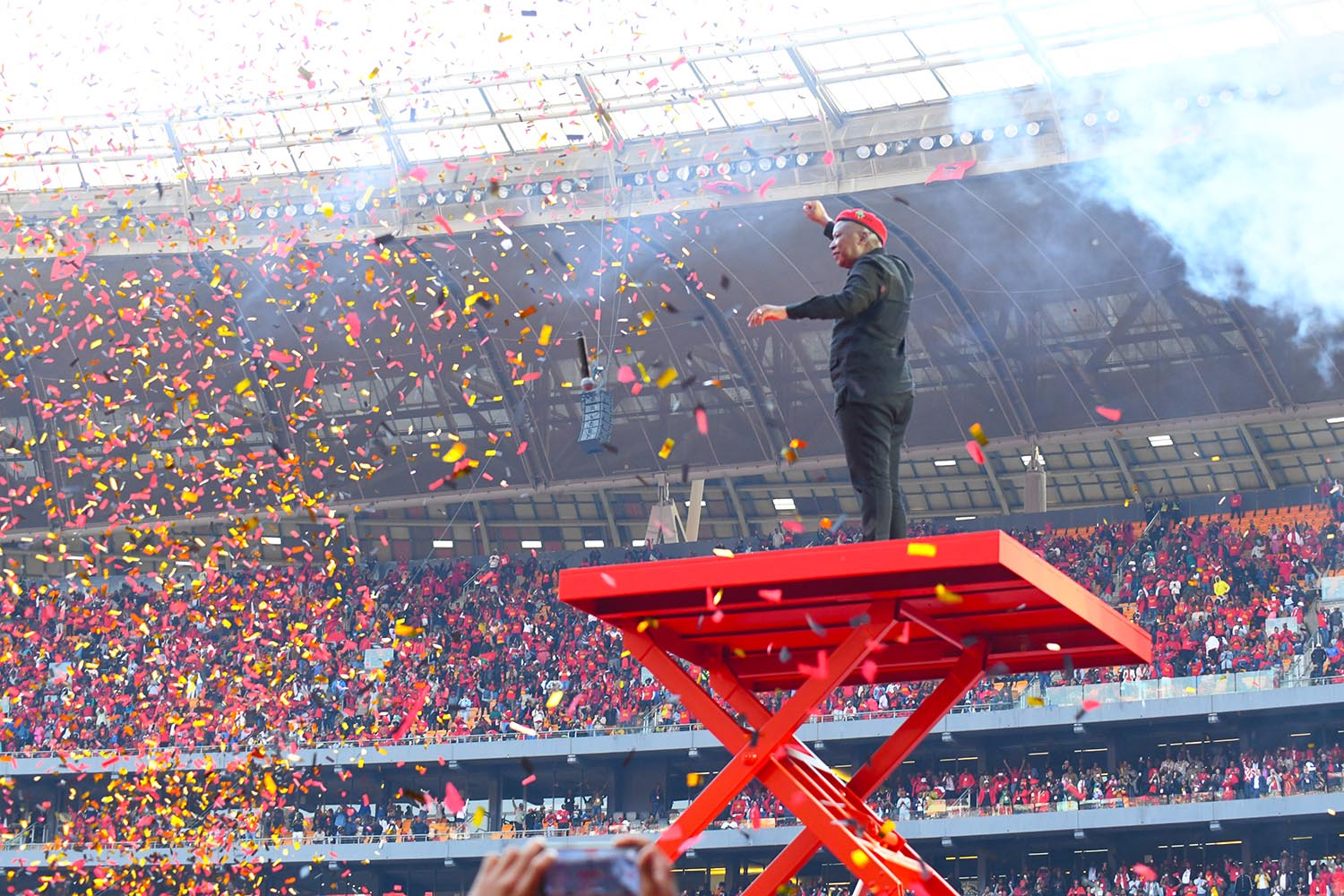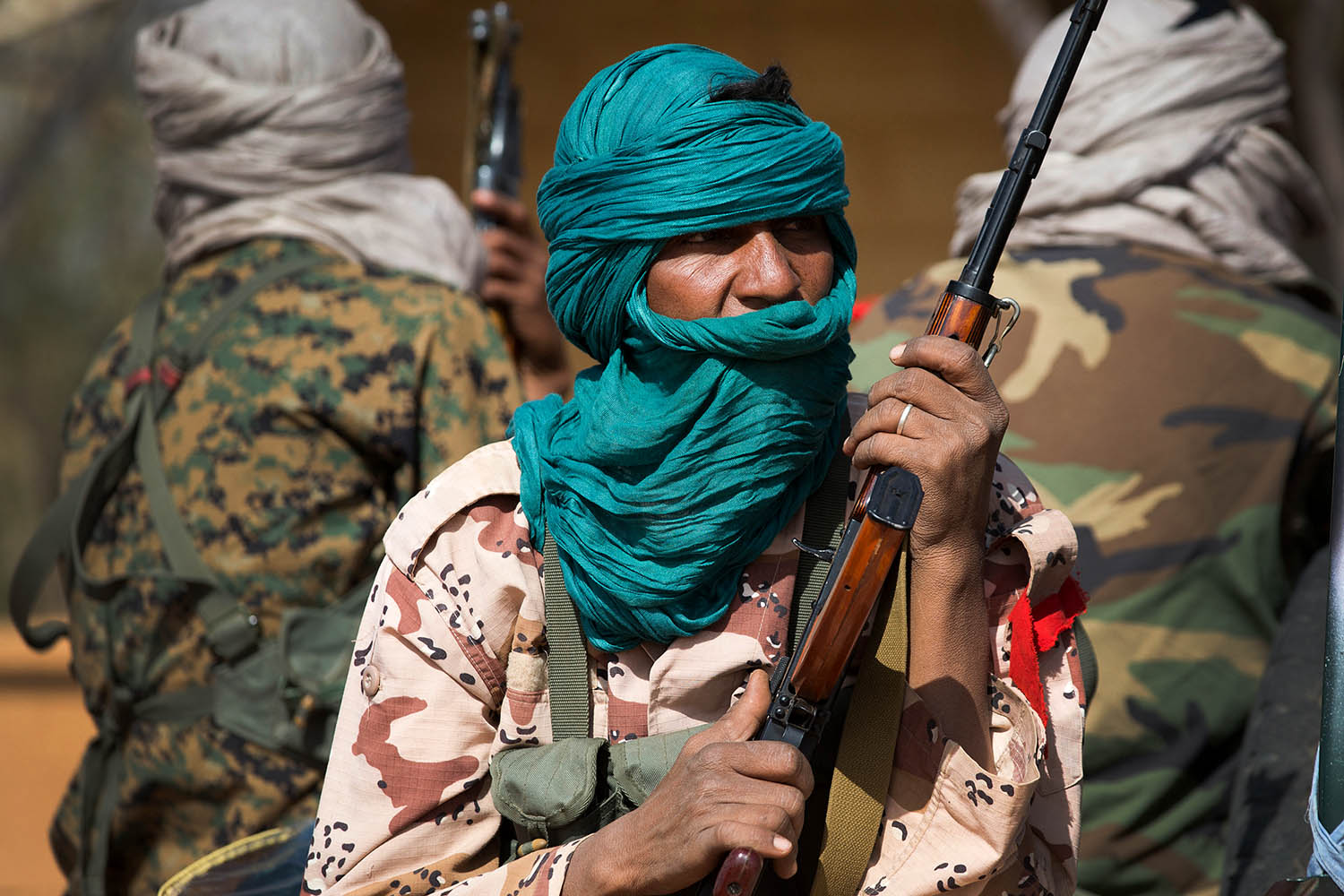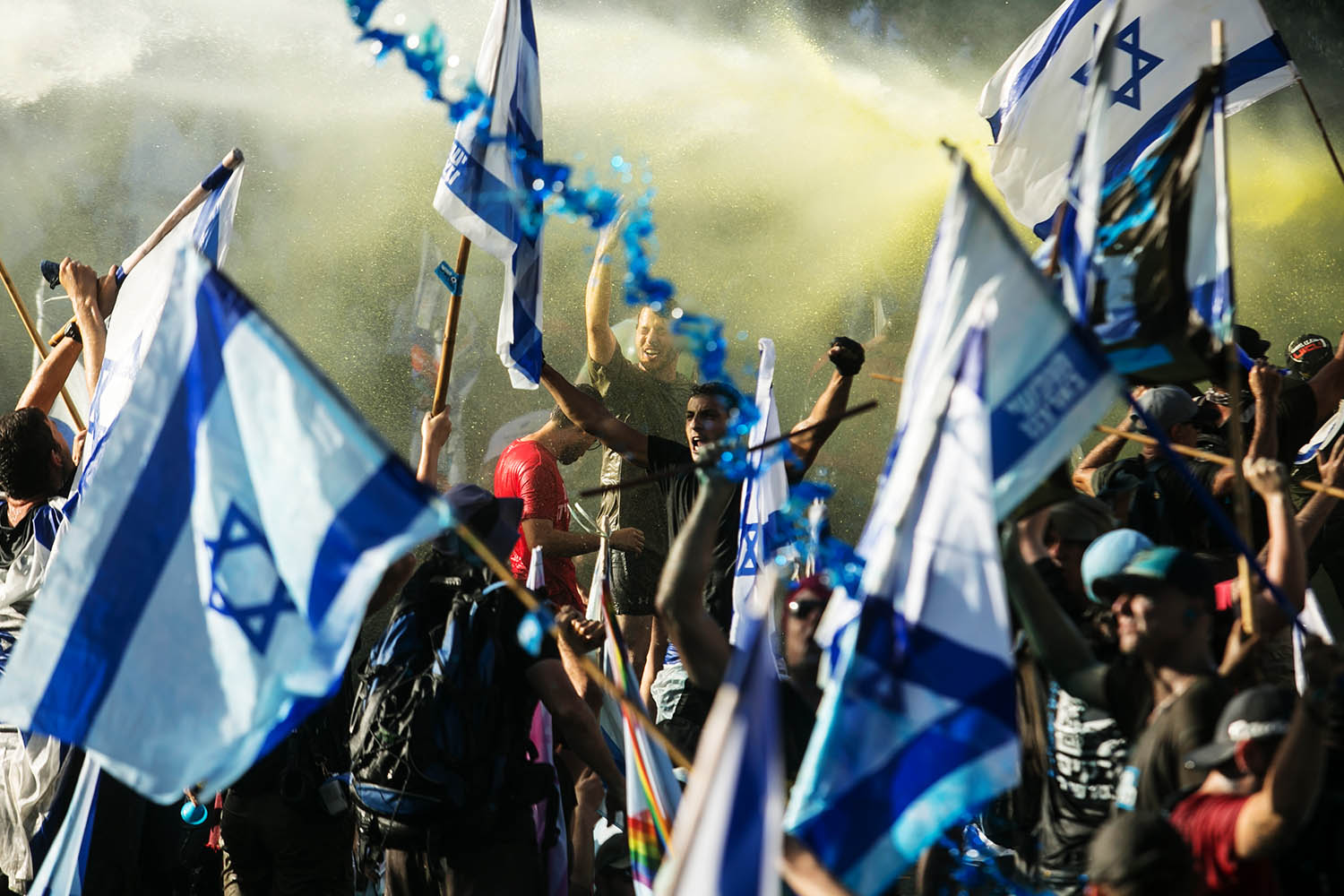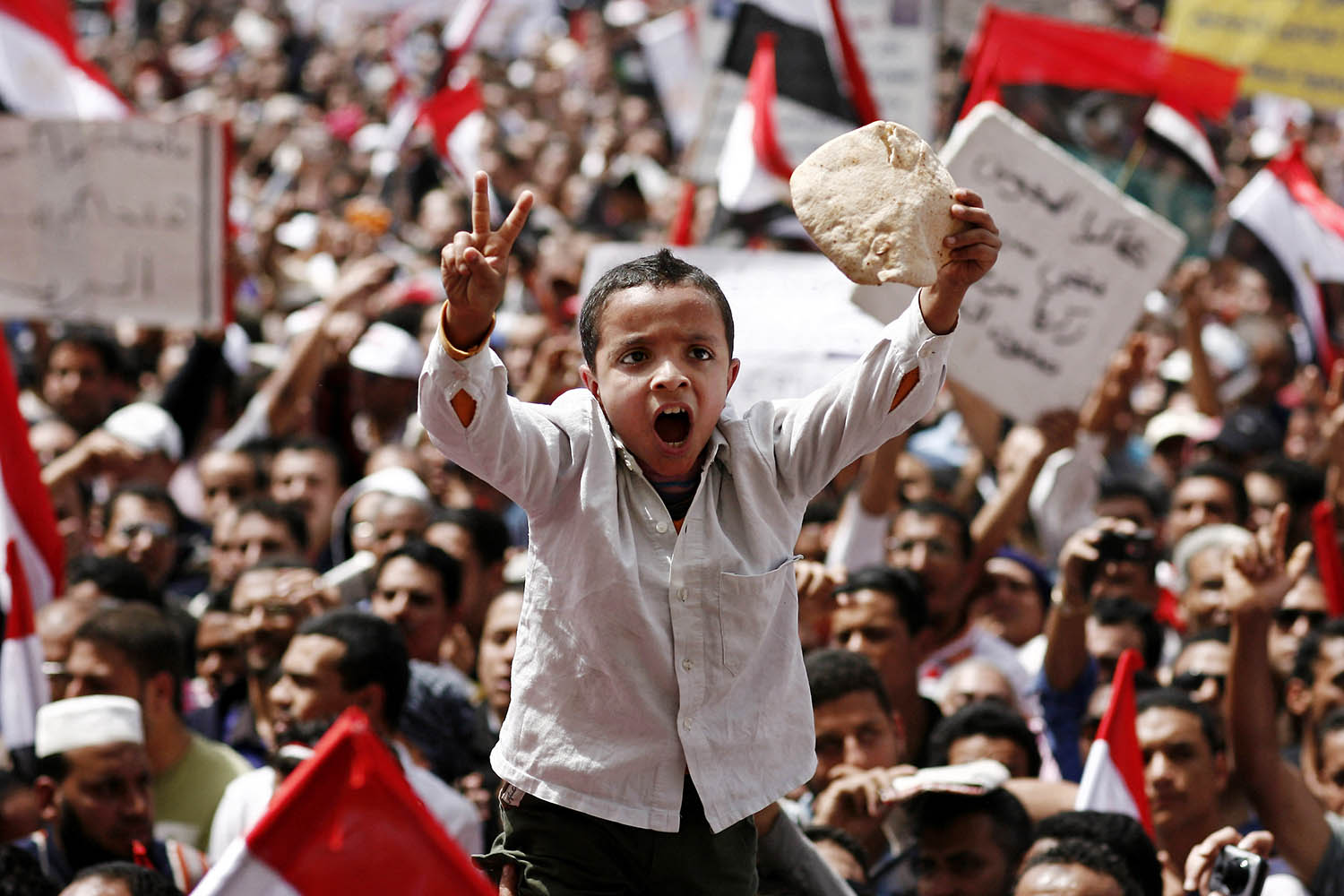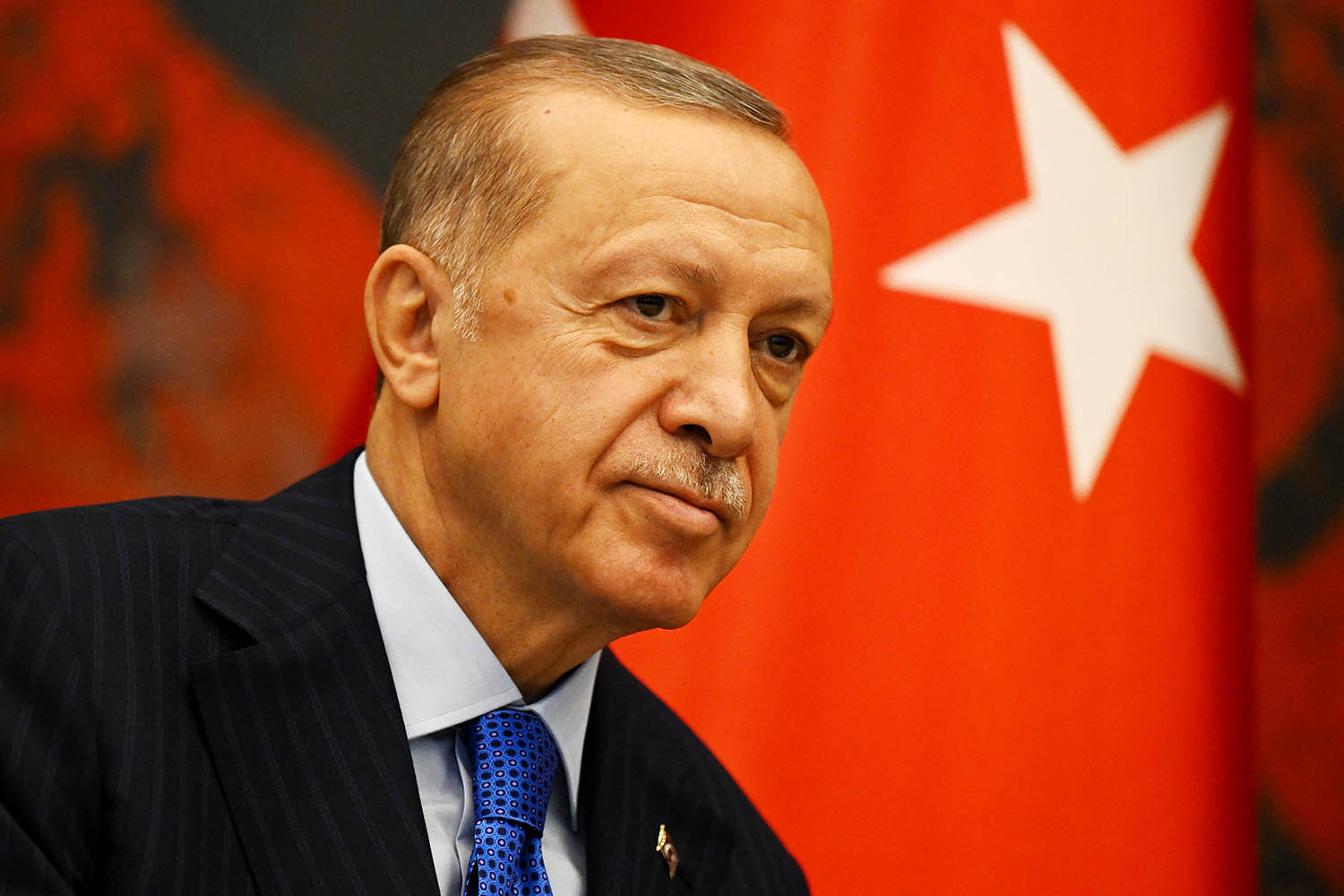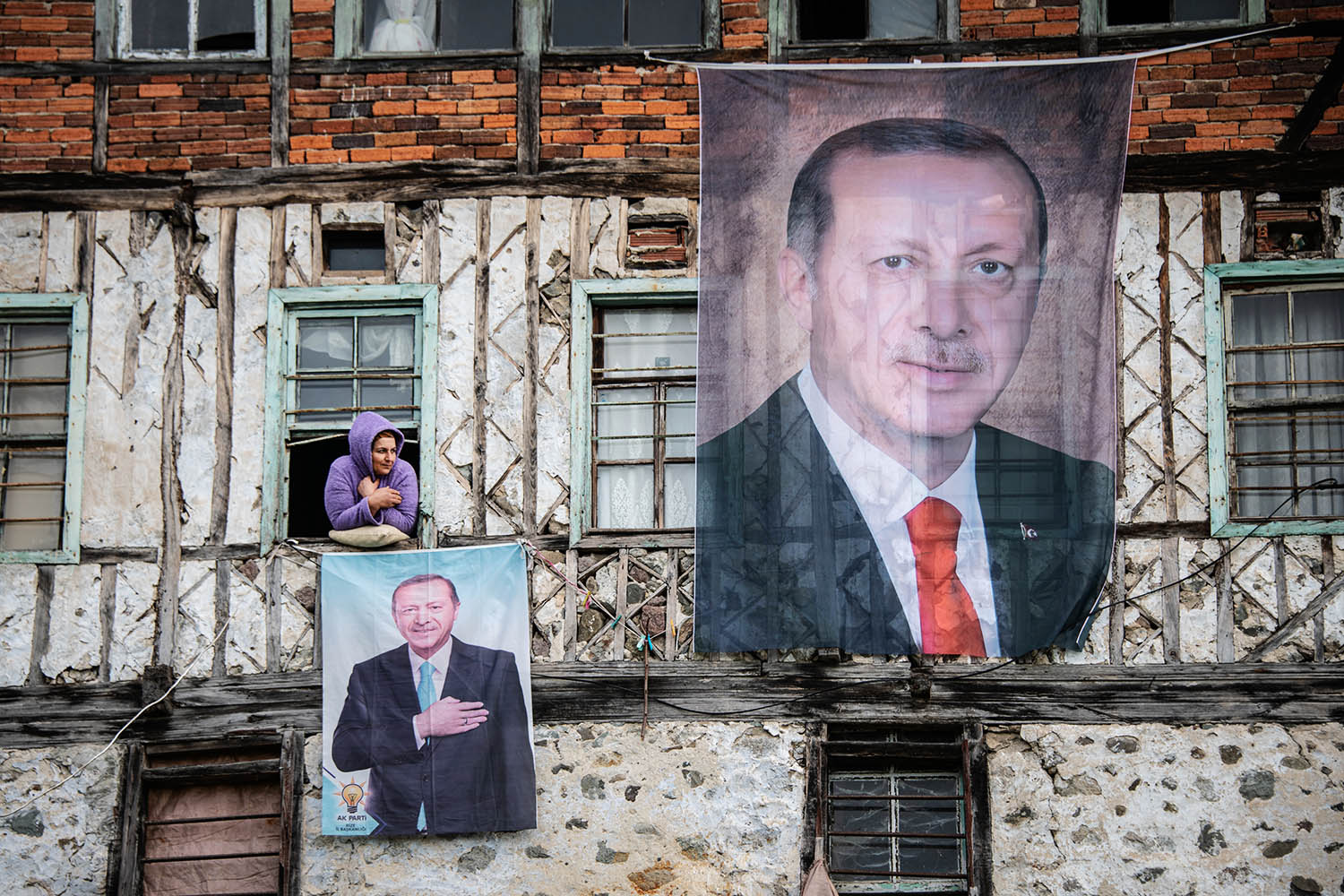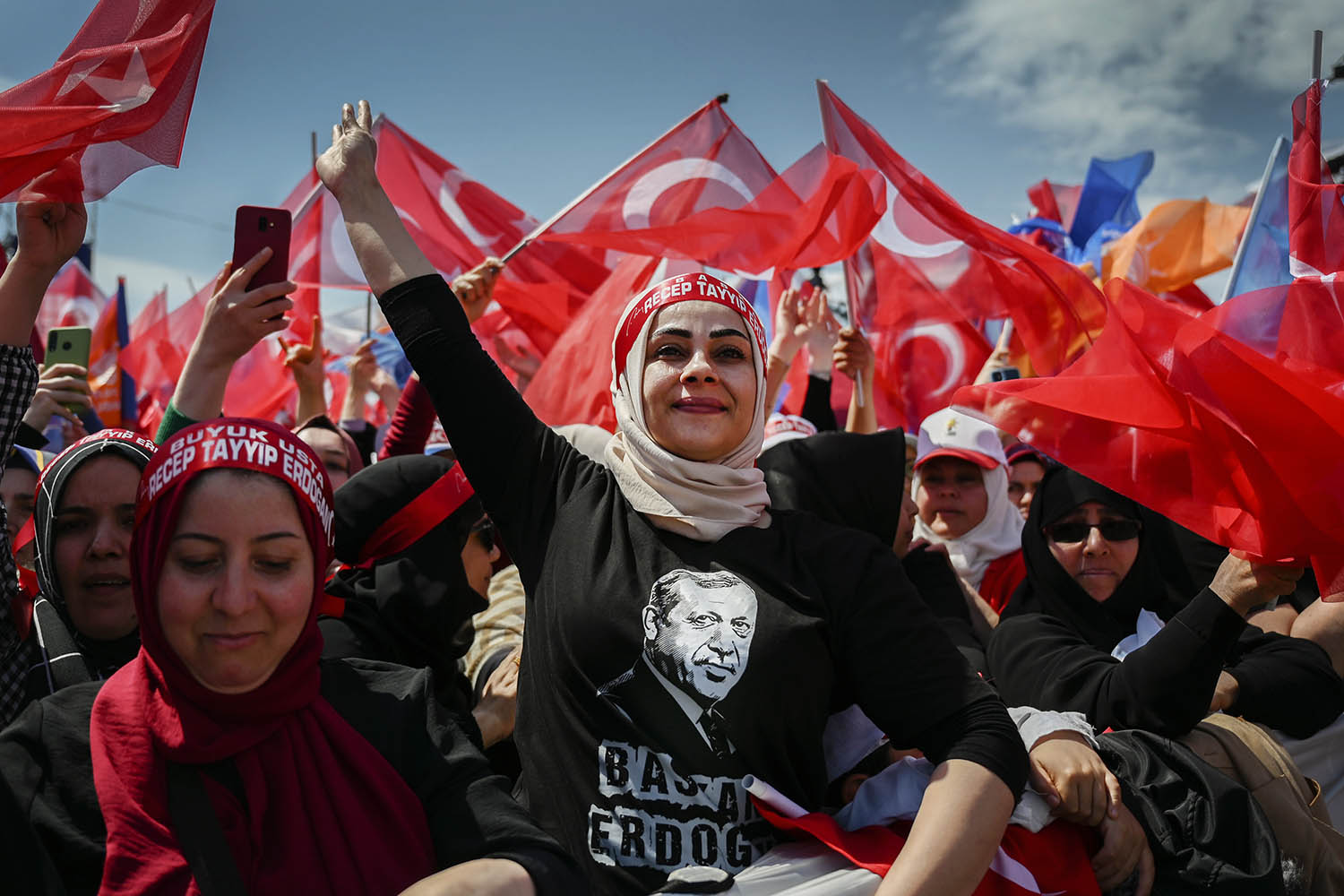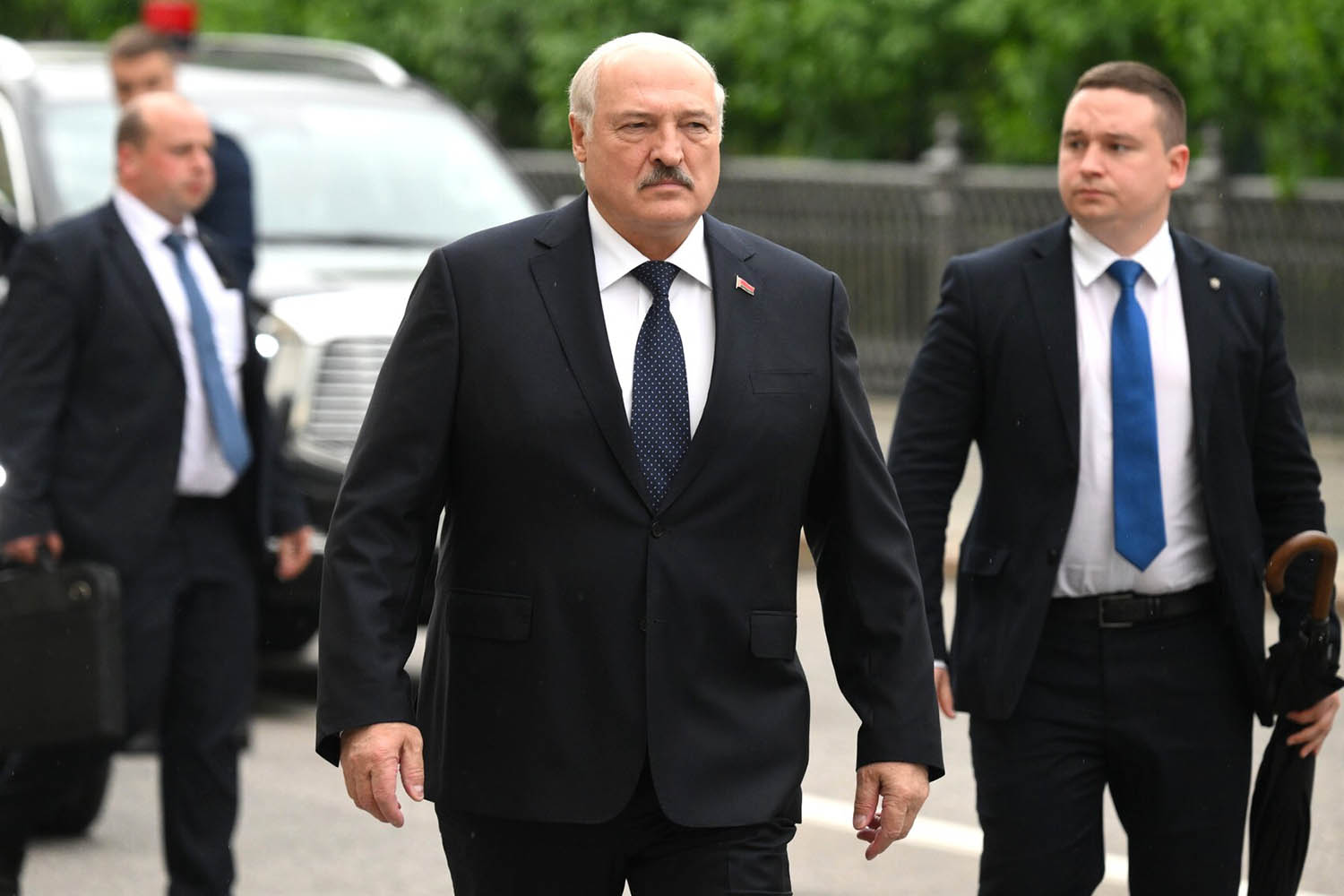
Belarus dictator Alexander Lukashenko has clung to power for 30 years thanks to Putin. The Russian leader’s showdown with Wagner was a chance to return the favour.
- Russian missiles hit a crowded restaurant and shopping area in the eastern Ukrainian city of Kramatorsk, killing ten.
- The UK has lost its leadership on climate issues and almost all targets are being missed, according to a government watchdog.
- Pompeii archaeologists discovered a “proto-pizza” in a 2,000 year-old fresco.
Until last weekend Alexander Lukashenko was a cliché: the craven thug who with brute force and Putin’s help had clung to power in Belarus for almost 30 years. He was Europe’s last dictator.
So what? When he picked up Putin’s call on Saturday, Lukashenko returned the favour. By brokering the deal that allowed Yevgeny Prigozhin to retreat to exile in Minsk and his fighters to submit to the control of the Russian state, he has helped Putin keep power in Russia.
Pariah Sasha. Lukashenko has not been internationally recognised as president since rigged elections that prompted the 2020 uprising. Not that he appears to care. He has intensified political repression at home, deliberately created a refugee crisis on the EU’s borders and, in 2021, diverted an international flight to arrest an opposition activist and his girlfriend. His status now is international pariah, de facto leader of Belarus and – still – Putin’s puppet.
Russia’s annexe. Belarus is technically independent but in practice a Russian satellite, used by Putin as a “reserve airfield”, army base and forward position for tactical nuclear weapons (due to arrive there by 7-8 July). Lukashenko has also offered Prigozhin’s Wagner Group fighters the use of an abandoned military base.
Putin’s playbook. In the long build-up to the 2020 elections Lukashenko strengthened the public presence of the police and army, suppressed what free speech remained in Belarus and persecuted his political opponents. When he claimed to have won 80 per cent of the vote, 1.5 million people (15 per cent of the population) took to the streets to protest. Lukashenko had a decision to make – talk to the protesters or crush them – but Putin made it for him.
In August 2020 an FSB plane landed in Minsk, exporting Russian techniques to cement autocracy in Belarus. It brought Russian police, interior ministry troops and TV propagandists. As a direct result…
- opposition leader Svetlana Tsikhanouskaya was forced out of the country;
- thousands of protesters were arrested and many of them tortured (activists say there are currently nearly 1,500 political prisoners in Belarus); and
- the country’s remaining independent journalists were jailed or forced into exile.
Ukraine’s headache. Belarus did not attack Ukraine last year but let the Russian army invade it from the North, trying to capture Kyiv. Putin has since said Russia isn’t handing nuclear weapons to Belarus but “placing them on Belarus territory”, deliberately blurring responsibility for their use.
Lukashenko has form as a Putin stooge in negotiations involving Ukraine:
- He hosted talks between Ukraine, Russia and Russia’s proxies in Donbas in 2014-2015, resulting in the Minsk-1 and Minsk-2 agreements which Russia has never honoured.
- During Prigozhin’s armed mutiny, as Wagner units rolled up the M4 towards Moscow, Lukashenko offered to let Prigozhin “hang out” in Belarus and to train the Belarusian army, which has been recently brought to full combat readiness.
Exporting unrest. Local experts say Wagner troops now stationed in Belarus are unlikely to threaten the Ukrainian army. But what if the Belarusian army is deployed in the war?
Tikhanovskaya, the opposition leader, says that would be a red line for the people of Belarus, who don’t support the war. “Society is under huge pressure,” she told Tortoise in March. “Mobilisation or sending troops to Ukraine would blow it up. Partisans, volunteers and activists are just waiting.” Last Saturday she created a new operational headquarters in exile in Lithuania and invited democratic organisations and volunteers to unite in a new effort to force Russian troops out of Belarus.
There is fresh optimism in Belarus that Prigozhin’s abortive rebellion could still prove a turning point. Denis Prokhorov, commander of a pro-Ukrainian Belarusian battalion, called it “the end of the great tyranny”, warning the Belarusian military against taking part in Russia’s “civil war”. He called on Belarusians to join self-defence detachments, and military and reservists “to wait for a signal”. Wagner’s arrival in Belarus could be just that.

